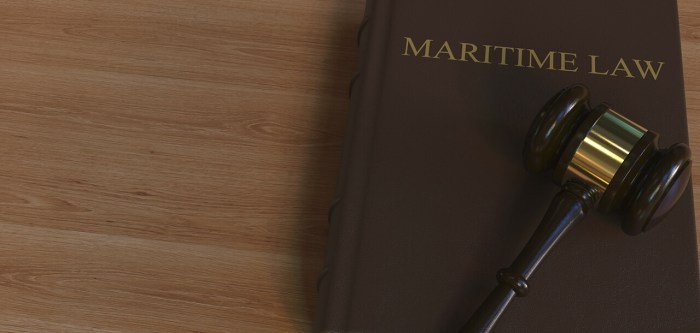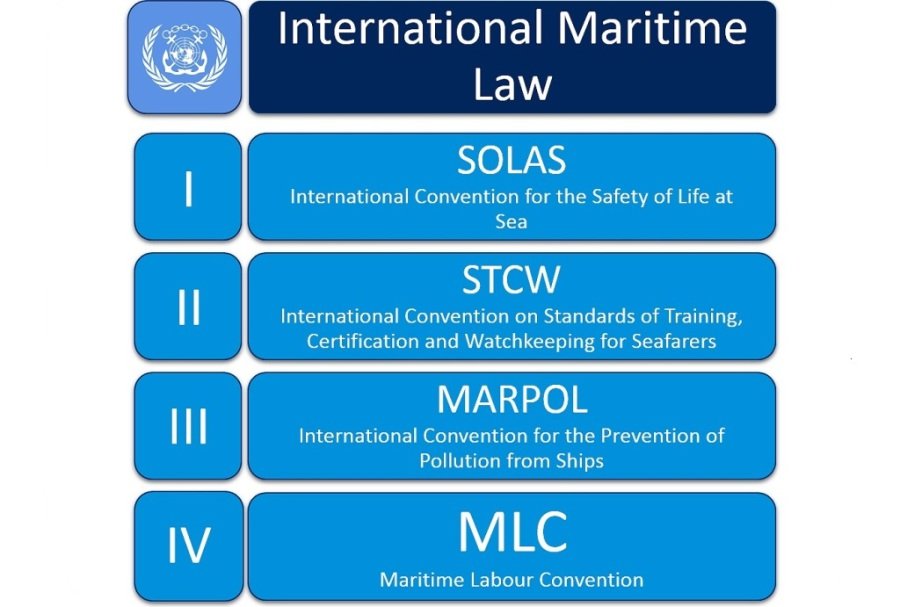
Embark on a journey into the fascinating world of maritime law with UCL’s esteemed Masters program. This program offers a rigorous curriculum designed to equip students with the knowledge and skills necessary to navigate the complexities of this dynamic field. From understanding international shipping regulations to tackling contemporary challenges like environmental protection and technological advancements, the program provides a comprehensive education for aspiring maritime law professionals.
UCL’s strong faculty, renowned research facilities, and extensive industry connections provide students with unparalleled opportunities for learning and career development. This program isn’t just about memorizing statutes; it’s about critical thinking, problem-solving, and developing the expertise to contribute meaningfully to the global maritime industry.
UCL Maritime Law Masters Program Overview

The UCL Maritime Law LLM program offers a rigorous and comprehensive education in all aspects of maritime law, equipping students with the theoretical knowledge and practical skills necessary to excel in this dynamic and globally significant field. The program benefits from UCL’s strong reputation in law and its location in the heart of London, a major international maritime hub.
Curriculum Structure
The UCL Maritime Law LLM is typically a one-year, full-time program. It is structured around a combination of core and elective modules, allowing students to tailor their studies to their specific interests within maritime law. The program culminates in a substantial dissertation, allowing for in-depth research and analysis of a chosen topic. Teaching methods involve lectures, seminars, workshops, and tutorials, fostering interactive learning and critical thinking.
Admission Requirements
Admission to the UCL Maritime Law LLM program is competitive. Applicants typically require a first-class or upper second-class honours degree (or equivalent) in law or a related discipline. A strong academic record is essential. Proficiency in English is also a requirement, usually demonstrated through IELTS or TOEFL scores. Relevant professional experience in the maritime industry, while not always mandatory, is highly valued and can significantly strengthen an application. The program may also consider other qualifications and experience on a case-by-case basis.
Core and Elective Courses
The specific courses offered may vary slightly from year to year, but the program generally includes a mix of core and elective modules. Below is a sample of the types of courses that might be included:
| Course Name | Credits | Description | Professor (Example) |
|---|---|---|---|
| International Maritime Law | 15 | Covers fundamental principles of international maritime law, including the UNCLOS and other key conventions. | Professor Anya Petrova |
| Shipping Law | 15 | Focuses on the legal aspects of ship ownership, operation, and financing. | Professor David Jones |
| Maritime Dispute Resolution | 10 | Explores various methods of resolving maritime disputes, including arbitration and litigation. | Professor Sarah Lee |
| Marine Insurance | 10 | Examines the principles and practices of marine insurance, including hull and cargo insurance. | Professor Michael Brown |
| Seafarer’s Rights and Welfare | 10 | Explores the legal protection afforded to seafarers under international and national law. | Professor Emily Carter |
| Maritime Environmental Law | 10 | Covers the legal framework for protecting the marine environment from pollution and other hazards. | Professor Robert Davies |
Career Prospects and Job Roles
Graduates of the UCL Maritime Law LLM program are well-prepared for a variety of careers in the maritime industry and related sectors. Potential job roles include working as maritime lawyers in private practice, in-house counsel for shipping companies or ports, or as legal advisors to international organizations involved in maritime affairs. Graduates may also pursue careers in maritime arbitration, marine insurance, or government agencies responsible for maritime regulation. The strong academic background and practical skills gained through the program provide a solid foundation for success in these and other related fields. For example, a graduate might find employment with a major international law firm specializing in maritime disputes, advising clients on complex legal issues relating to shipping contracts or liability claims. Alternatively, a graduate could work for a classification society, ensuring compliance with international maritime standards.
Faculty and Research Expertise
The UCL Maritime Law Masters program boasts a distinguished faculty renowned for their expertise in various aspects of maritime law. Their extensive experience in academia, legal practice, and policy-making informs their teaching and research, providing students with a rich and comprehensive learning environment. This expertise is further enhanced by access to cutting-edge research facilities and resources.
The faculty’s research interests span a wide range of contemporary maritime law issues, including shipping finance, international trade, environmental regulations, and dispute resolution. This breadth of specialization ensures students are exposed to diverse perspectives and the latest developments within the field.
Key Faculty Members and Specializations
The program benefits from the contributions of several leading academics. While a comprehensive list is beyond the scope of this overview, some notable faculty members and their areas of expertise include professors specializing in international shipping law, admiralty practice, and maritime arbitration. Their research often focuses on emerging challenges within the industry, such as technological advancements and their impact on maritime regulation, or the complexities of international maritime dispute resolution. Many faculty members have published extensively in leading academic journals and are frequently invited to speak at international conferences and workshops. This ensures that the curriculum remains current and reflects the latest legal scholarship and industry practices.
Ongoing Research Projects
The research undertaken by the faculty is actively shaping the field of maritime law. Several projects are currently underway, focusing on areas of significant current interest:
- An investigation into the legal and regulatory frameworks governing the use of autonomous vessels, exploring potential challenges and opportunities for the maritime industry.
- A study examining the effectiveness of international mechanisms for addressing marine pollution and environmental protection in the context of increasing maritime traffic.
- Research into the impact of Brexit on the UK’s maritime sector, including its implications for shipping regulations and international trade.
- A project analyzing the application of alternative dispute resolution mechanisms, such as mediation and arbitration, in resolving maritime disputes.
These projects, and others, benefit from collaborative efforts with leading maritime organizations and institutions worldwide. The findings from these studies often directly inform the program’s curriculum and contribute to the ongoing debate within the field.
Research Facilities and Resources
Students have access to UCL’s extensive library resources, including a vast collection of legal databases, journals, and books specializing in maritime law. Furthermore, the program offers access to specialized research software and online legal resources. The department also facilitates connections with external organizations, allowing students to engage in practical research projects and gain valuable industry experience. These resources, coupled with the faculty’s guidance, provide a supportive environment for students to conduct independent research and contribute to the field.
Student Experience and Resources

The UCL Maritime Law Masters programme prioritises a supportive and enriching learning environment for its students. A range of resources and services are available to ensure students thrive academically and professionally during their studies. This includes dedicated academic support, career guidance, and opportunities for networking and collaboration with peers and industry professionals.
The programme fosters a strong sense of community, facilitating interaction and knowledge exchange among students from diverse backgrounds and professional experiences. This collaborative atmosphere is further enhanced through various initiatives and events designed to enhance the overall student experience.
Student Support Services
UCL provides comprehensive student support services tailored to the needs of postgraduate students. These services include academic advising, providing guidance on course selection, dissertation supervision, and research methodologies. Furthermore, dedicated administrative support assists with enrolment, visa applications, and other logistical matters. The UCL Careers Service offers individual career guidance sessions, workshops on CV writing and interview techniques, and access to a network of employers within the maritime sector. Students also benefit from access to the extensive UCL library resources, including online databases and specialist journals relevant to maritime law. The university also provides wellbeing support services, including counselling and mental health resources, ensuring students have access to the help they need to maintain their overall wellbeing.
Networking and Collaboration Opportunities
The UCL Maritime Law Masters programme actively cultivates networking opportunities for its students. The programme often hosts guest lectures and workshops delivered by leading practitioners and academics in the field. These events provide excellent opportunities for students to interact with professionals and learn about current trends and challenges in the maritime industry. Regular seminars and informal gatherings provide a platform for students to engage with their peers and faculty, fostering collaboration and knowledge sharing. Furthermore, the programme encourages student participation in relevant conferences and networking events, providing invaluable opportunities to build professional connections. Past students have actively participated in maritime law societies and associations, leveraging their UCL connections to establish strong professional networks.
Examples of Student Projects and Dissertations
Past student projects and dissertations have explored a wide range of topics within maritime law. For example, one student investigated the legal implications of autonomous vessels and the challenges posed by the increasing automation of shipping. Another focused on the effectiveness of international conventions in combating piracy and maritime terrorism. A further example involved an in-depth analysis of the legal framework governing marine environmental protection, specifically focusing on the liability regimes for oil spills. These examples illustrate the diverse range of research undertaken by students, reflecting the breadth and depth of the Maritime Law programme’s curriculum. Many dissertations have been published in academic journals or presented at international conferences, showcasing the high quality of research conducted by UCL Maritime Law Masters students.
Program Comparison with Other Institutions
Choosing a Master’s program in Maritime Law requires careful consideration of various factors, including curriculum, faculty expertise, career prospects, and overall program reputation. This section compares the UCL Maritime Law Masters program with similar offerings at other leading universities, highlighting its unique strengths and potential advantages and disadvantages.
Comparative Analysis of Maritime Law Masters Programs
The following table offers a comparison of the UCL Maritime Law Masters program with similar programs at other prestigious universities. Note that tuition fees and program durations can vary depending on factors such as nationality and specific program intake. This data represents a snapshot in time and should be verified with the respective universities’ websites for the most up-to-date information.
| University | Program Name | Approximate Tuition (GBP) | Program Duration | Specializations/Focus |
|---|---|---|---|---|
| University College London (UCL) | LLM Maritime Law | 30,000 – 40,000 (Estimate) | 1 year full-time | Broad maritime law, with options for specialization through dissertation topic. |
| University of Southampton | LLM Maritime Law | 25,000 – 35,000 (Estimate) | 1 year full-time | Strong emphasis on shipping law and international trade. |
| University of Cardiff | LLM Maritime Law | 28,000 – 38,000 (Estimate) | 1 year full-time | Focus on legal and commercial aspects of shipping and offshore energy. |
| National University of Singapore (NUS) | LLM Maritime Law | Variable (SGD) | 1 year full-time | Strong Asian perspective, covering regional maritime issues. |
Unique Strengths of the UCL Maritime Law Masters Program
The UCL Maritime Law Masters program distinguishes itself through several key strengths. Its location in London, a global hub for maritime commerce and legal practice, provides unparalleled access to leading maritime law firms, organizations, and professionals. The program benefits from the extensive network and expertise within UCL’s wider Faculty of Laws, facilitating collaborations and enriching the learning experience. Furthermore, the program’s curriculum often incorporates current legal developments and industry best practices, ensuring graduates are equipped with the most up-to-date knowledge. The opportunity to tailor the program through dissertation work allows students to specialize in areas of particular interest.
Advantages and Disadvantages Compared to Competitor Programs
Compared to other programs, UCL’s program offers the advantage of its location in a major global maritime center, fostering networking opportunities and exposure to a diverse range of legal practices. The reputation of UCL’s Faculty of Laws further enhances the program’s prestige and graduate employability. However, the higher cost of living in London and potentially higher tuition fees compared to some universities could be a disadvantage for some prospective students. The program’s breadth might also be seen as a disadvantage by students seeking a highly specialized curriculum compared to programs with a narrower focus. Ultimately, the best program will depend on individual student needs and preferences.
Illustrative Case Studies
This section presents several case studies that highlight key concepts in maritime law, showcasing the practical application of legal principles in diverse maritime contexts. These examples demonstrate the complexity and nuances involved in resolving disputes and navigating the regulatory framework governing maritime activities.
Hypothetical Case Study: Jurisdiction in a Collision at Sea
This hypothetical case explores the complexities of determining jurisdiction in a maritime collision. Imagine two vessels, the *Oceanic Star*, registered in Panama, and the *Arctic Voyager*, registered in Norway, collide in international waters within the vicinity of the Azores. The *Oceanic Star*, carrying a cargo of oil from the Gulf of Mexico to Rotterdam, suffers significant damage, resulting in an oil spill. The *Arctic Voyager*, a bulk carrier transporting grain from Argentina to Europe, sustains minor damage. Both vessels and their respective owners have different claims. The question of jurisdiction arises: which national court possesses the authority to hear the resulting lawsuits concerning liability for damages, the oil spill cleanup costs, and potential environmental fines? This case study will examine the relevant international conventions, such as the UN Convention on the Law of the Sea (UNCLOS) and the collision regulations of the International Regulations for Preventing Collisions at Sea (COLREGs), to determine the applicable legal framework and potential jurisdictional challenges. The case will also consider factors such as the flag states of the vessels, the location of the incident, and the nationalities of the parties involved.
The Exxon Valdez Oil Spill
The 1989 Exxon Valdez oil spill in Prince William Sound, Alaska, remains a landmark case in maritime law. The oil tanker, owned by Exxon Shipping Company, ran aground on Bligh Reef, releasing approximately 11 million gallons of crude oil into the pristine environment. The ensuing litigation involved numerous lawsuits, encompassing claims for environmental damage, property damage, economic losses, and punitive damages. The case highlighted the significant liabilities associated with oil spills, including the application of strict liability principles under the Oil Pollution Act of 1990 (OPA). The legal battles lasted for years, culminating in significant financial penalties for Exxon and setting precedents for environmental remediation and the assessment of damages in large-scale maritime pollution incidents. The case also raised crucial questions about the adequacy of existing safety regulations and the effectiveness of response mechanisms in mitigating the consequences of major maritime accidents. The legal precedents set by the Exxon Valdez case continue to influence the development of maritime environmental law and the implementation of preventative measures aimed at reducing the risk of future spills.
Maritime Law in the Offshore Energy Industry: The Deepwater Horizon Disaster
The Deepwater Horizon oil spill in the Gulf of Mexico in 2010 represents a significant case study of maritime law’s application within the offshore energy sector. The explosion and subsequent sinking of the Deepwater Horizon drilling rig, operated by BP, resulted in a massive oil spill, causing extensive environmental damage and economic losses. The ensuing legal proceedings involved numerous parties, including BP, Transocean (the rig owner), and Halliburton (the cement contractor). The case highlighted the complexities of liability allocation in offshore operations, involving various contracts, regulatory frameworks, and potential violations of maritime safety regulations. The legal battles focused on determining the respective roles and responsibilities of each party, examining issues such as negligence, strict liability, and the application of maritime torts. The resulting settlements and court decisions significantly impacted the offshore energy industry, leading to enhanced safety regulations, stricter oversight, and a heightened focus on risk management and environmental protection. The Deepwater Horizon case exemplifies the intersection of maritime law, environmental law, and contract law in high-stakes offshore energy projects.
Future Trends in Maritime Law
The maritime industry faces a period of significant transformation, driven by technological advancements, evolving environmental regulations, and geopolitical shifts. These changes present both challenges and opportunities, requiring a dynamic and adaptable approach to maritime law to ensure the continued safety, efficiency, and sustainability of global shipping. Understanding these future trends is crucial for maritime professionals and policymakers alike.
Emerging Trends and Challenges in International Maritime Law
The international legal framework governing maritime activities is constantly evolving to address new complexities. One key trend is the increasing focus on cybersecurity within the maritime sector. The interconnected nature of modern vessels, through their reliance on sophisticated communication and navigation systems, makes them vulnerable to cyberattacks, potentially leading to serious consequences such as navigational errors, data breaches, and even physical damage. International cooperation is essential to develop robust cybersecurity standards and legal frameworks to mitigate these risks. Another emerging challenge is the increasing prevalence of autonomous vessels. The legal implications of assigning liability in the event of accidents involving autonomous ships require careful consideration, potentially necessitating revisions to existing collision regulations and insurance frameworks. Finally, the growing importance of Arctic shipping, driven by melting ice caps, presents new jurisdictional and environmental challenges, requiring the development of international legal regimes to manage this emerging shipping route.
The Impact of Technology on Maritime Law and Regulation
Technological advancements are profoundly impacting maritime law and regulation. The rise of big data analytics allows for improved risk assessment and predictive maintenance, leading to enhanced safety and efficiency. This data, however, raises privacy concerns regarding the collection and use of sensitive information. The deployment of autonomous vessels and remotely operated vehicles requires adaptation of existing legal frameworks to address issues of liability, crew certification, and operational safety. Blockchain technology offers potential for streamlining documentation processes and enhancing transparency in supply chains, improving efficiency and reducing fraud. However, legal frameworks need to be developed to ensure the secure and reliable application of this technology within the maritime context. The use of artificial intelligence (AI) in areas such as vessel traffic management and port operations raises questions regarding accountability and the potential for algorithmic bias.
Maritime Law’s Role in Addressing Environmental Concerns in the Shipping Industry
The shipping industry contributes significantly to greenhouse gas emissions and marine pollution. International maritime law is playing an increasingly critical role in mitigating these environmental impacts. The International Maritime Organization (IMO) has implemented regulations to reduce sulfur emissions, and is currently developing strategies to address greenhouse gas emissions from ships, including the adoption of carbon intensity indicators and potential future carbon pricing mechanisms. Furthermore, maritime law addresses the prevention and response to marine pollution incidents, including oil spills and the discharge of harmful substances. The development of robust liability and compensation frameworks is crucial to ensure effective remediation and prevent future incidents. The growing awareness of plastic pollution in the oceans is also driving the development of new regulations to reduce plastic waste from ships and to address the issue of abandoned, lost, or discarded fishing gear. The effective implementation and enforcement of these regulations require international cooperation and collaboration.
Wrap-Up

UCL’s Maritime Law Masters program stands as a beacon of excellence in legal education, providing a pathway to successful careers in a globally interconnected maritime sector. By combining academic rigor with practical application, the program empowers graduates to become leaders and innovators in the field, tackling the complex legal and ethical challenges that shape the future of maritime affairs. The comprehensive curriculum, coupled with access to leading researchers and industry connections, ensures that graduates are well-prepared to contribute significantly to the maritime industry’s ongoing evolution.
FAQ Overview
What is the program’s duration?
The duration typically varies; check the UCL website for the most up-to-date information.
What are the tuition fees?
Tuition fees are subject to change. Consult the official UCL website for current pricing.
Are there scholarship opportunities?
Yes, UCL offers various scholarships and funding opportunities. Check their website for details and eligibility criteria.
What career paths are available after graduation?
Graduates often pursue careers in shipping companies, law firms specializing in maritime law, government regulatory bodies, and international organizations.
